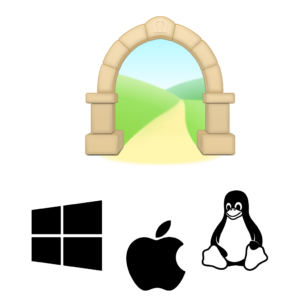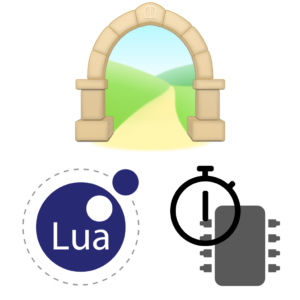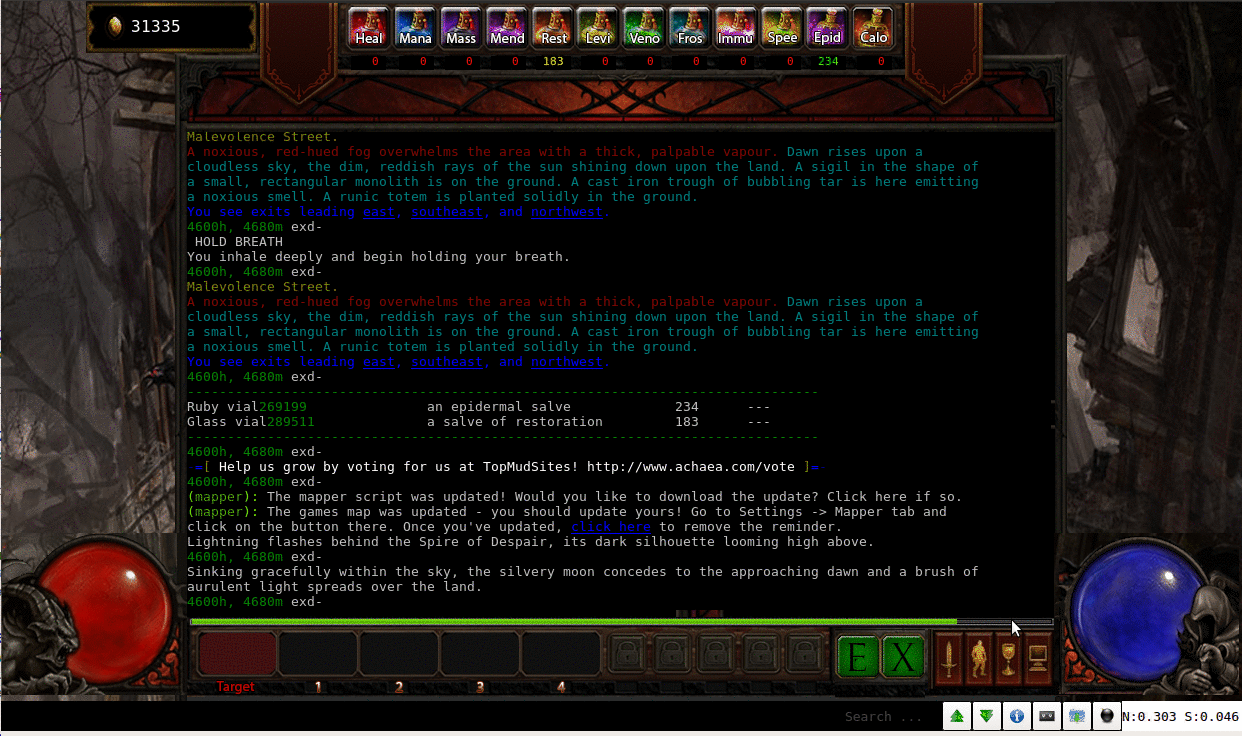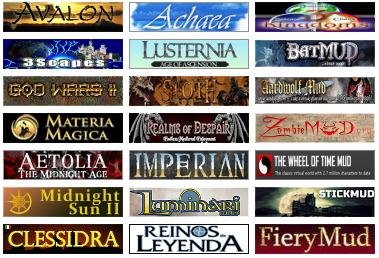Gioca con Mudlet a giochi di ruolo coinvolgenti, multiutente, completamente testuali.
Cos’è Mudlet?
Mudlet is a platform for gaming and enhancing game-play primarily with MUDs.
Mudlet provides a toolkit and supports a wide variety of protocols for players and creators to tailor an immersive game-playing experience. MUD creators can use Mudlet to add visual flair or build features into their text games. MUD players can utilize the Mudlet toolkit to script and automate parts of their gameplay or add their own visual customization for game data.
Outside the realm of MUD games, Mudlet has even been used to provide automation and features in 3D games which support in-game chat and a Telnet or similar server-console protocols.
Cosa sono i MUD?
I multi user dungeon (abbreviato in MUD /ˈmʌd/, talvolta inteso come acronimo di multi user dimension o domain) sono una categoria di videogiochi di ruolo eseguiti su Internet attraverso il computer da più utenti. Si tratta di giochi testuali, dove i giocatori interagiscono con il mondo e gli altri utenti digitando dei comandi da tastiera. I MUD uniscono elementi di giochi di ruolo, hack-and-slash, scontri tra giocatori, storie interattive e chat online. I giocatori possono leggere descrizioni di stanze, oggetti, altri giocatori, personaggi non giocanti e azioni eseguite nel mondo virtuale. I giocatori tipicamente interagiscono tra loro e il mondo digitando comandi che assomigliano alla lingua parlata. – Wikipedia
È il tipo di gioco di cui ti innamorerai per la sua capacità di raccontare una storia, tenerti con il fiato sospeso in epici combattimenti, intrigarti con politica subdola, o, anche solo, passare un po’ di tempo con dei nuovi amici.
Key Features
- Fully Customizable User Interface
- Multiple Simultaneous Games
- Comprehensive Mapping System
- Powerful Lua Scripting and API
- In-Application Script Editor
- Import / Export Profile Data
- Various MUD Protocol Support
- Secure Connection Support
- In-App IRC Client & Lua API
- Supports Discord Rich-Presence
Mapper
Un mapper potente, 2D e 3D con la ricerca percorso integrata.
Mudlet News
4.17.1 – now more screenreader friendly!
A follow-on to 4.17.0 that fixes tab windows going permanently bold, the F6 keybinding, and nested buttons.
4.16 – easier map labels, map autosaves, and scriptable settings
Summer is around the corner in the Northern Hemisphere… and so is a new update of Mudlet! It brings easier map labels, map autosaves, and scriptable settings.
Easier map labels
The previous version of Mudlet had a map label form that was hard to use. This version has a much simpler map label experience, thanks to Delwing’s efforts.
Map autosaves
Profile autosaves, after they had been introduced, largely eliminated losses of unsaved scripts when Mudlet was unexpectedly shut down. Map autosaves are here to do the same thing: even if you don’t save your map by hand, Mudlet will save the map for you in the background on a regular basis, so you don’t lose your work.
Just like profile autosaves, this feature is easy on the disk space as it keeps just one autosaved copy of the map around.
Scriptable settings
This one has been on the wish list for a good while – the ability for scripts to adjust Mudlet’ settings to their liking. This is now here by the way of a setConfig function. The initial implementation of this feature by ktunkiewicz and Vadi has options for adjusting the map view, enabling MSDP, and various special options. More settings will be added over time.
Release automation
A lot of effort this release was put into automating releases since the process was far too unwieldy and complicated. Delwing got his elbows out, and created a plugin to synchronise github releases to Wordpress, which cut down on a lot of overhead. FloXire automated US English translation text generation, Vadi tweaked changelog generation to work for releases as well as PTBs, and keneanung restored connectivity between Github and mudlet.org. All of these improvements make releasing much easier!
While we’ve made great strides in this area, there is still some work to do, so if you can help out – join in!
Changelog
There’s a lot of improvements in this Mudlet update besides the top 3 listed above, so dig into the changelog below to find goodies:
Added:
setConfig and an initial set of values (#6074)
Traditional Chinese exit strings to generic mapper (#6076)
map autosaves (#6056)
new function getCustomLines1(…) to fix ordering of custom line points in original getCustomLines(…) (#6009)
new function getCharacterName() (#6023)
map info background can be customized through mapper colors preferences (#5994)
Improved:
give a simpler connection dialog a go (tabbed) (#5883)
increase max allowed links to 20k (#6064)
New Crowdin translations (#6060)
add NULL handling in DB.lua (#6054)
don’t freeze Mudlet when copying large profile (#5056)
add support for Unicode 14 emojis to linux (#6053)
properly size unicode 13 and 14 emojis (#5915)
make new profile name check case insensitive (#6035)
Map label creation form (#5981)
Fixed:
eliminate some obsolete code warnings in Lua label related function (#6063)
add handling of new features element in IRE Muds XML map format (#6075)
handling MXP entity tags on Discworld is now correct (#5969)
strange clipping multiline map info text (#5990)
setLabelDoubleClickCallback arguments work again as documented (#5970)
handle sound files in subdirectories as well (#5984)
fix selecting none for map info and reading map info (#5976)
stopSounds() work for for triggers again (#5977)
get tempComplexRegexTrigger multiline to work (#5946)
getAreaExits does not return special exits (#5963)
Infrastructure (behind the scenes):
add licenses for bundled luarocks modules (#5995)
add en_US plural translations workflow (#5956)
add resilience to macOS notarization process (#6047)
add visual studio files to .gitignore (#5988)
add website release post automation (#6043)
add workflow to create changelog from the web (#6006)
automate author attribution (#6045)
Busted installation instructions on Windows (#6057)
cache Qt installation for Windows (#6048)
create posts on draft releases to test WP plugin (#6059)
don’t print danger message if everything was kosher (#6078)
enable vcpkg for all cmake-based builds (#5913)
fix grammar in the issue template (#6079)
fix Luarocks on Windows (#6028)
fix macOS codesigning to work again (#6012)
fix openssl and yajl downloads for all platforms (#5980)
fix packaging in Linux builds (#6013)
fix Windows CI builds (use previous VS 2019 to get Qt 5.14.2 back) (#6031)
fixup files in QMake OTHER_FILES and DISTFILES variables (#6037)
install Qt 5.14.2 using aqtinstaller for Windows (#6030)
Openssl archive url (#5965)
remove duplicate list of clang-tidy checks (#5962)
remove no longer necessary brew tap step (#5968)
remove trailing spaces from changelog generator (#6011)
repair Windows CI build failures (#6072)
shorten some lengthy variables (#6017)
switch to current vs 2019 appveyor image (#6046)
switch to 5.1-syntax_5.1 branch for lcf submodule (#5998)
update changelog generator to handle releases as well (#6002)
update OpenSSL used for Windows (#6068)
Update widechar_width.h to latest upstream (#6080)
Update Windows CI zlib to 1.2.12 (#6027)
Updated IRE mapping script to latest upstream (#6083)
Enjoy Mudlet,
Vadi
4.15 – gifs, music, and editable shortcuts! — IT
Every Mudlet release is like a box of presents, according to Mudlet dev Delwing. This box brings gifs, scrollboxes, and revamped sound & music to Mudlet - welcome to the first update of 2022! You can now use gifs in your Mudlet UI You heard it here first, folks -...
FORZA!
Installa Mudlet ora e diventa parte di un’esperienza immersiva che aspetta solo te.
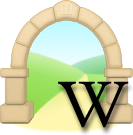
Mudlet’s Documentation is available via the Mudlet Wiki. Translations and enhancements are welcome!
Join Community Forum or Discord server for sharing, developing, and getting support.
Mudlet source code, issues and feature requests available on Github. Translations and enhancements are welcome!

